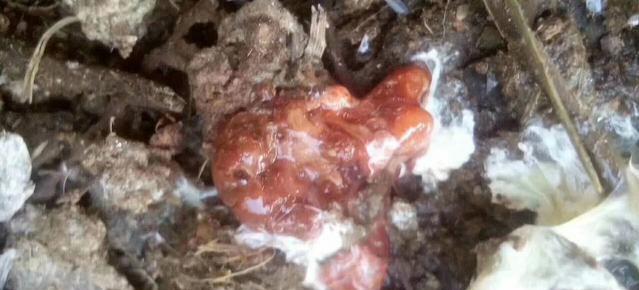Click the above concern button, pay attention to [Xiao Wu], private message me, reply to "in", get lifelong breeding guidance, talk about management, watch breeding, discuss the market, and talk about the world of breeding together

It's the season of coccidioid outbreaks again, with repeated attacks? Teach you to diagnose quickly and effectively treat "coccidiosis"
【Coccidiosis development process】
Where there are chickens, there are coccidioides, this sentence is not exaggerated at all, coccidiosis oocysts have a strong resistance, ordinary disinfectants can not completely kill it.
Coccidioides reproduce mostly in one week, the first two days are the first asexual reproductive stage of coccidiosis, the second asexual reproductive stage of coccidiosis on day 3 or 4, the sexual reproduction stage of coccidiosis on days 5 and 6, and the spore reproduction stage of coccidioides on day 7.
Therefore, once the chicken farm has coccidiosis, it is necessary to treat it as soon as possible, and it is necessary to use drugs in time in the first and second stages of coccidiosis reproduction, and it is more difficult to control it once it reaches the third stage.
【Prevention and control of coccidiosis】
The frequency of outbreaks of coccidiosis is directly related to whether the usual management is in place.
High density, poor air in the house, temperature, humidity, or feed nutritional imbalance, is an important factor leading to chicken coccidiosis, so farmers must control the environmental management.
In the field with a long breeding time, the outbreak rate of coccidiosis is higher, and the long-term use of one coccidiosis drug is easy to develop drug resistance, and it is recommended that two or more drugs be used alternately. Are you ready? Today we will take a closer look at chicken coccidiosis.
The precautions are as follows:
1. The supply of diet nutrition: In the diet, the full-price feed rich in vitamins or sufficient green feed should be given to improve the body's resistance. If vitamin A is lacking in the feed, the integrity of the digestive tract mucosa and the blood clotting mechanism are damaged, and coccidiosis is susceptible to invasion.
2. Add an appropriate amount of anticoccidial drugs to the feed: but stop the drug according to the provisions of the drug suspension period to avoid drug residues in the listed chickens.
3. Do a good job of bedding management: (according to whether the bedding is wet, whether the air is turbid), if the bedding around the chicken coop drinking fountain is the most prone to moisture, it should be cleaned and replaced at any time.
4. Strengthen the ventilation of the chicken coop: avoid excessive feeding density, keep the chicken coop clean and dry and other feeding management.
5. Pay attention to the resistance of coccidiosis drugs: it is recommended to regularly replace coccidiosis vaccines with anticoccidial drugs. It can be used interchangeably with white ball diarrhea and small leather balls. For details, please click here
6. Do a good job in vaccination: in the summer (especially in April-July), 12-15-day-old chicks should be vaccinated and prevented, and the better immunization age of chicken coccidiosis vaccine is 6 days old, and it is recommended to use chicken coccidiosis tetravalent live seedlings, and appropriate drug health care can be carried out before and after immunization.
7. Strengthen hygiene and cleanliness: strengthen the cleanliness and hygiene of chicken coops and sports fields, spray disinfectants for disinfection, and eliminate mosquitoes, flies, rodents, etc.